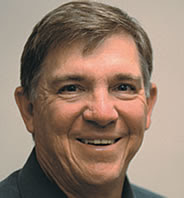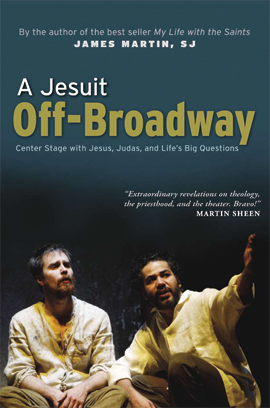
"Angels & Demons,"
by Dan Brown
Okay, it's taken me some time to get to "The DaVinci Code" pre-quel, but I figured I'd better read the book as well as see the movie if I want to have any credibility in talking or writing about the controversy that has some in the Catholic community feeling anxiety at the least and threatened at the most.
So, here on the day before the movie is released in the United States, let me say this about the book version of "Angels & Demons": Potboiler.
Nothing special in the way of literature, writing or even a good mystery.
Clever use of the geography of Rome? Yep.
A compelling story? Nope.
A page-turner? Not really.
If you haven't figured out half-way through the 700-plus pages where this puppy is going to end up, you need to read more paperback mysteries. If I tell you that the hero -- the same guy who is the super sleuth in "The DaVinci Code" -- gets the girl in the end, will you really be surprised?
The Catholic concern
So why do some in the Catholic community have their undies in a bunch about the movie "Angels & Demons?"
It's not so much that the church is attacked by the plot. The action of some of the clergy and hierarchy might be something some would say clergy and hierarchy would never do, but nowadays with some of the news our priests and bishops make, that argument is specious at best.
What author Dan Brown does is continue an insidious train of thought about the Catholic Church that tends to drive Catholics crazy. It's the matter-of-fact way of writing that makes statements about religion and about the church that have an anti-religion and anti-Catholic bias.
Some examples:
- The theme behind the plot is that science is getting revenge on religion "after centuries of persecution" by the church. References to Galileo and Copernicus are one part of the evidence for that, but conveniently missing are references to the likes of Gregor Mendel, the Augustinian priest who is rightly called "the father of modern genetics," or Antoine-Laurent Lavoisier, "the father of modern chemistry," a Catholic beheaded during the French Revolution.
- There's a tangential passage that takes hero Robert Langdon back recalling a Harvard University classroom scene in which he cleverly points to Catholic rituals as being unoriginal and borrowed from other cultures. Take the Eucharist: How the "god-eating" rite of the Aztecs were supposedly "borrowed" by Christianity seems to be quite a stretch, given that a man such as the evangelist Paul, writing in the 1st century, and the writers of the synoptic Gospels for that matter -- pegged between 60 and 115 AD, aren't likely to have even known of the existence of the Aztecs, the first reference to which appears in the 6th century.
- One of the minor characters sees the church as "an innocuous entity...a place for fellowship and introspection...sometimes just a place to sing out loud without people staring at her."
And then, of course, there is that hauling out of the tired demonization of the Catholic Church for its "wealth." Looking down a hallway at the Vatican, one character "was sickened by the opulence," author Brown writes. "The gold leaf in the ceiling alone probably could have funded a year's worth of cancer research."
Is it jealousy that makes others point at the church and say it should give away all the timeless works of art therein to end poverty? Maybe the Louvre should do the same? And while we're at it, let's sell the U.S. Supreme Court Building to the highest bidder and put the court in the rented space of a closed auto dealership. Who needs artistry, craftsmanship and beauty? -- bz



No comments:
Post a Comment